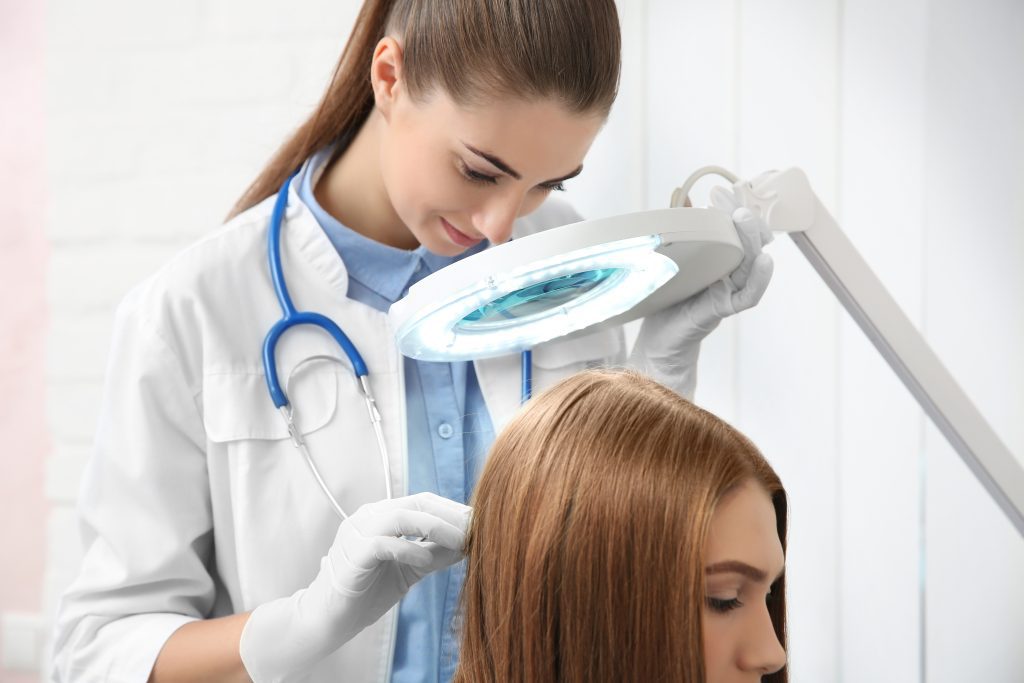Prevent Hair Loss With These Hacks
Hair loss, scientifically called alopecia, is a widespread concern affecting a considerable percentage of the population, surpassing 80 million individuals. The average person naturally sheds around 100 hair strands daily, a process balanced by the emergence of new strands to replace the lost ones, rendering the change imperceptible for most. However, a significant deviation from this norm, coupled with signs like a receding hairline or thinning areas, might indicate the presence of alopecia.
In addressing the multifaceted impact of hair loss, dermatologist Dr. Wilma Bergfeld explores strategies to curtail its progression, possible causative factors, and the potential for reversal. Hair loss extends beyond cosmetic repercussions, influencing emotional well-being and confidence levels. Fortunately, you can take several proactive measures to mitigate this concern.
Ensuring an adequate protein intake is crucial, as insufficient protein levels can impede hair growth. Individuals adhering to a vegan or vegetarian diet may need to augment their protein consumption, with a recommended daily intake of 40 to 60 grams. To meet this requirement, Dr. Bergfeld suggests flexible options such as protein-rich beverages, beans, legumes, eggs, or Greek yogurt.

Vitamin deficiency can adversely affect hair growth, particularly in vitamins A, B, C, D, E, zinc, and iron. To address this, Dr. Bergfeld advocates for diagnostic tests to identify deficiencies and recommends supplements such as biotin forte with zinc. She emphasizes the importance of choosing reputable brands and mentions newer formulations incorporating saw palmetto, calcium, and selenium.
Adopting a Mediterranean diet, characterized by a balance of fruits, vegetables, and protein, proves beneficial compared to restrictive diets. Dr. Bergfeld underscores the inadequacies often associated with extreme dietary regimens and their potential to deprive hair follicles of essential nutrients.

Over-the-counter medications like minoxidil, approved by the U.S. Food and Drug Administration at a 5% strength, present a viable option for preventing hair loss. Dr. Bergfeld introduces the consideration of low-dose oral minoxidil, supported by studies affirming its efficacy and safety.
Incorporating low-level laser light therapy, an FDA-approved treatment, can stimulate hair growth by reducing skin inflammation. However, this method may entail time-consuming sessions and significant costs, ranging from $200 to $1,000. Dr. Bergfeld assures its safety, noting minimal side effects such as scalp sunburn, which are manageable with lotions or reduced exposure.
Maintaining optimal hair and scalp care involves avoiding treatments and hairstyles that exert excessive strain on hair. Regular washing of hair and scalp is recommended to prevent inflammation, which can disrupt the hair growth cycle.

The identification of the root cause of hair loss is critical. A few factors that need consideration are genetics, stress, certain hairstyles, hormonal changes, damaging haircare practices, medications, and medical conditions. Collaborating with a dermatologist enables a comprehensive examination, including assessing other body areas for potential hair loss indications.
Dr. Bergfeld advises patients to monitor unusual events, such as heavy menstrual periods, as potential triggers for hair loss. Shedding hair is a crucial indicator of underlying imbalances or issues within the body, given the rapid turnover of hair follicle cells.
The reversibility of hair loss hinges on its type, with conditions like cicatricial alopecia deemed permanent, while those induced by stress or medical issues may be transient. Once the underlying cause is identified and addressed, a recovery period of four to six months to a year may witness the restoration of hair growth.
Hair loss involves a multifaceted approach encompassing nutritional considerations, lifestyle modifications, and therapeutic interventions guided by a dermatologist’s expertise. While some forms of alopecia may pose permanent challenges, a comprehensive understanding of causative factors empowers individuals to undertake targeted measures for optimal hair health.
